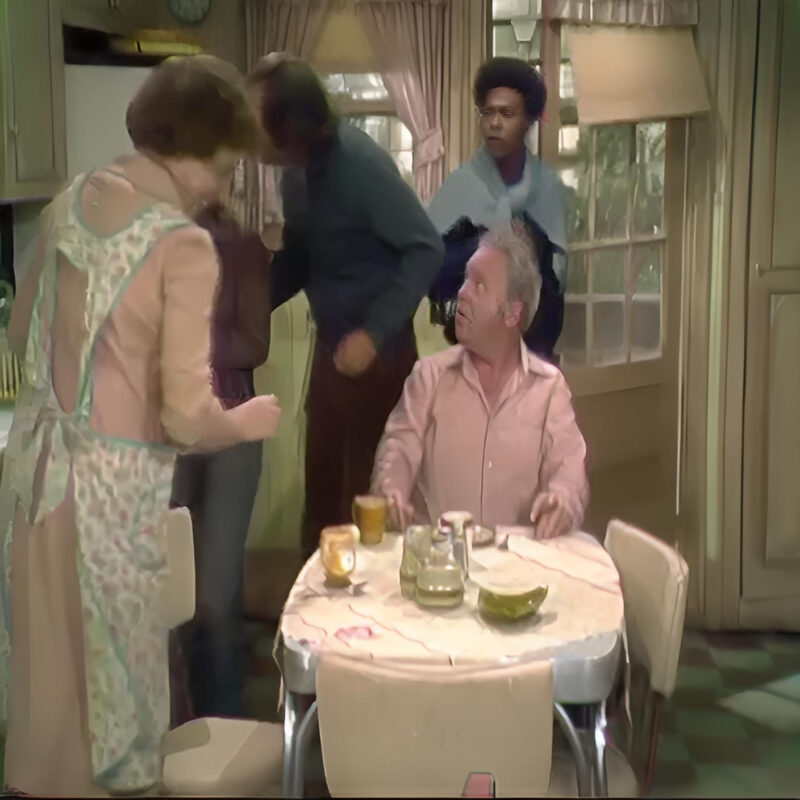
Movies and television have long had a dynamic push-pull relationship. At the dawn of the 21st century, as brands and intellectual properties began to dominate, TV emerged as the platform for creatives seeking to tell bold, original stories to a mainstream audience. This shift contrasted sharply with the social revolutions of the 1960s when networks often ignored societal changes, offering a slate of conservative-leaning sitcoms featuring predominantly white, straight, Christian characters. These shows avoided topics like the Civil Rights Movement and the Vietnam War, presenting a sanitized view of reality. Meanwhile, New Hollywood films embraced a more daring and realistic approach, moving away from the escapist fare that had previously dominated the box office.
In this cultural context, Norman Lear conceived “All in the Family,” inspired by the British dramedy “Till Death Us Do Part,” which premiered in 1965. Lear saw parallels between his own family and the show’s characters—a London family led by a bigoted, anti-socialist patriarch who insulted his wife and clashed with his progressive son-in-law and long-suffering daughter. Much like the early seasons of the U.S. version of “The Office,” the initial “All in the Family” pilot closely mirrored its British predecessor, with nationality being the primary difference. However, the show soon found its own identity, becoming a long-running hit and spawning a universe of spinoffs for CBS.
Interestingly, the show’s success was far from guaranteed. ABC spent hundreds of thousands of dollars to avoid airing an earlier version of the pilot.
CBS Takes a Gamble on “All in the Family” and Wins Big
The legend goes that the first two pilot attempts, titled “Justice for All” and “Those Were the Days,” failed due to casting issues. However, in LIFE’s 2021 single-issue magazine “All In The Family: TV’s Groundbreaking Comedy,” Lear recounted a different story. According to him, the studio audience “roared with laughter” at “Those Were the Days,” but ABC declined to air the episode despite spending $250,000 on it. “It wasn’t a question of whether it was funny or not,” Lear stated. “They peed in their pants. But they were afraid.”
CBS, too, was initially hesitant and added a long-winded disclaimer to the start of its reconfigured pilot, “Meet the Bunkers,” as a precaution. During the ’60s, CBS’s programming leaned heavily towards lighthearted fare like “The Andy Griffith Show,” “Gilligan’s Island,” “Petticoat Junction,” and “Mister Ed.” The network’s boldest departure from safe sitcoms was probably “The Munsters,” a show that, despite its supernatural characters, did not address contemporary social issues head-on like “All in the Family.”
While “The Munsters” subtly reflected sociopolitical concerns using Universal monster archetypes as metaphors for marginalized groups, “All in the Family” discarded such conceits altogether. It demonstrated that viewers were ready for more direct engagement with real-world issues, similar to the audiences flocking to New Hollywood films. Ultimately, ABC’s loss became CBS’s gain, marking a significant shift in the landscape of television storytelling.
